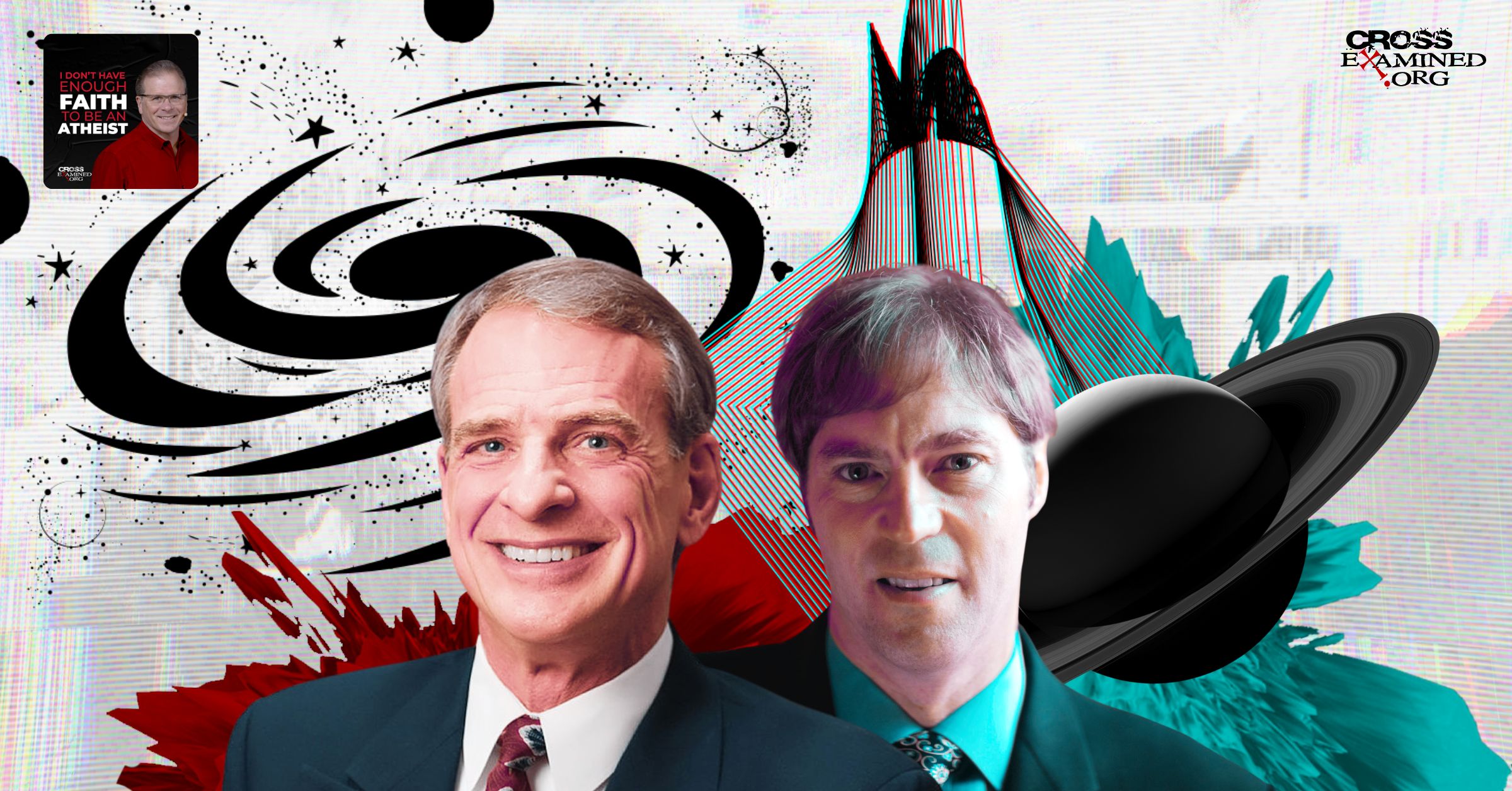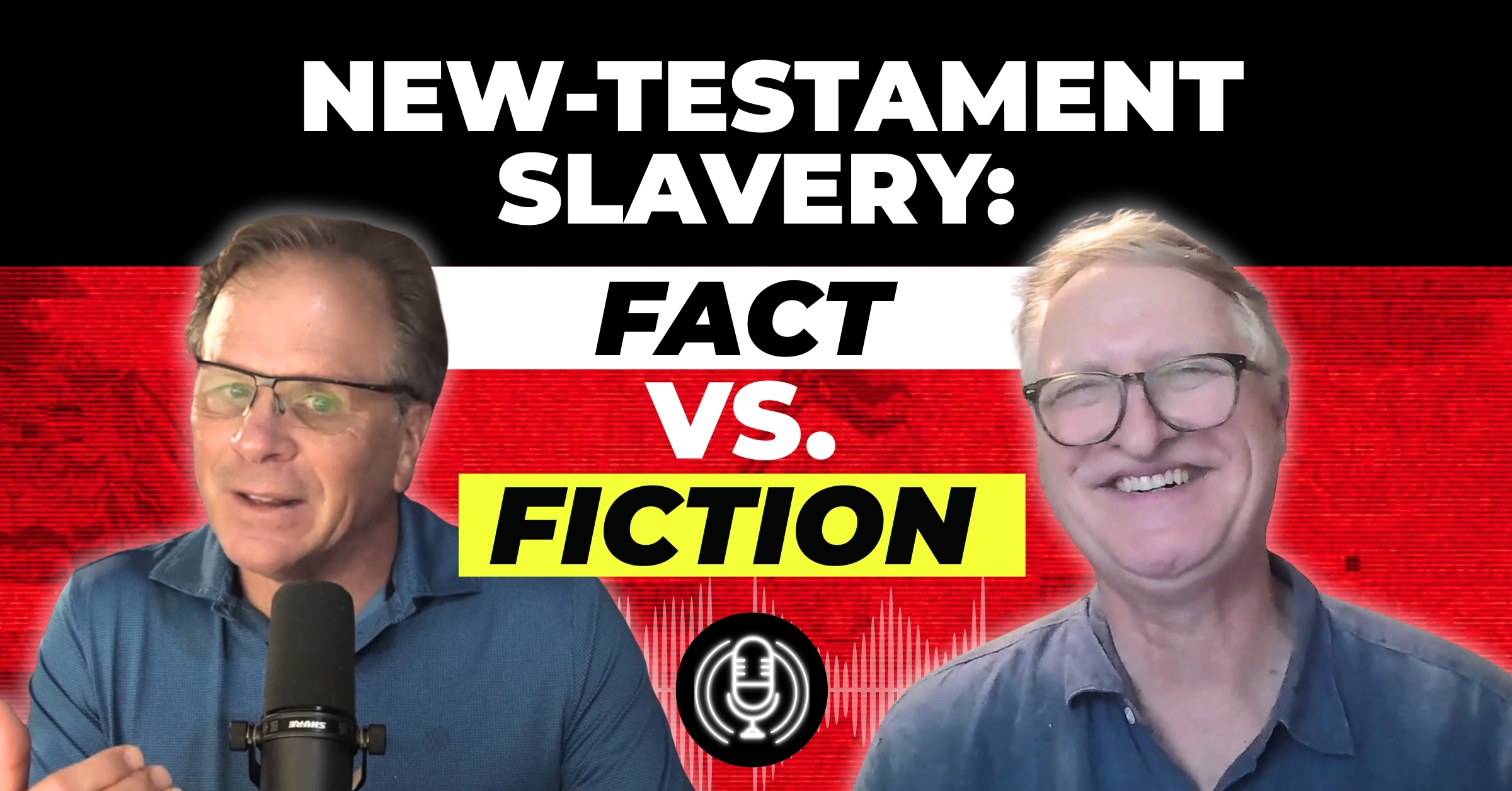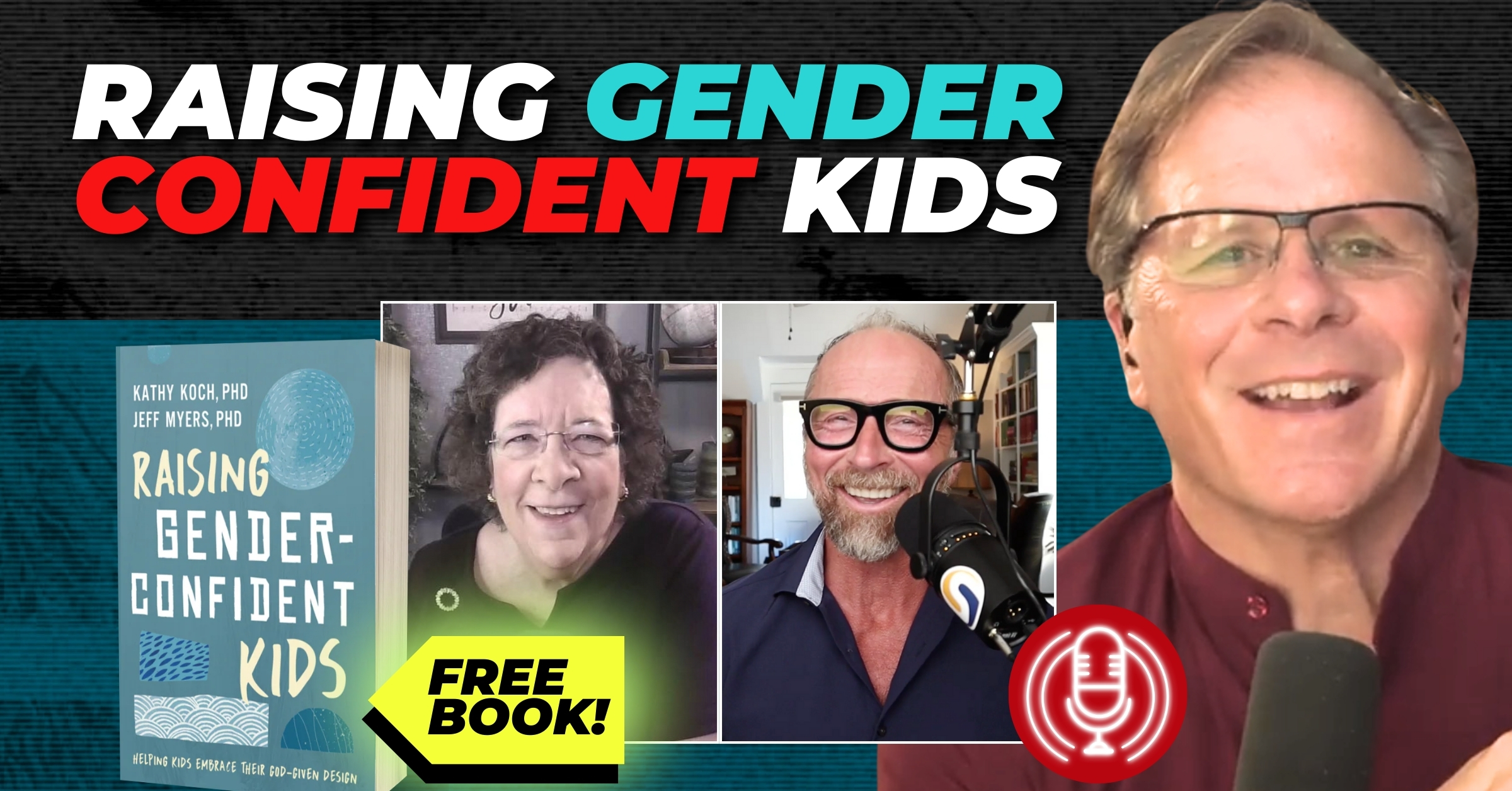What is the Meaning of Life?
Ancient philosophy began when people started thinking about ultimate reality. These early philosophers proposed theories about the ultimate elemental stuff which everything else comes from or is made of. Some of the early theories were earth, air, fire, or water. One ancient philosopher, Democritus, even suggested that everything is made up of tiny particles he called atoms. If Christianity is true, however, and I believe it is, then when the final curtain of reality is pulled back, we won’t find earth, air, fire, water, or atoms. Instead, we’ll find loving relationships between three divine persons. Ultimate reality, from which everything else comes, is a God which exists as a Trinity: three divine persons united in one essence and united in Their loving relationships with Each Other.
I’ve become convinced that chapter 17 in the Gospel of John provides us the clearest window to look inside this trinitarian love. Peering through this window will help us understand the very meaning of life itself. In John 17 Jesus, God the Son, prayed to God the Father like this: “You, Father, are in Me and I in You…. You loved me before the foundation of the world” (John 17:21a, 24b). If God is ultimate reality, and I believe He is, and if He exists as three persons in loving relationships with each other, then love is a key part, if not the key part, of ultimate reality.
Since God existed as a loving fellowship of divine persons, it can seem puzzling why He bothered to create us. Though He didn’t have to, He chose to create us, human beings in His image, to expand this fellowship of love so we could share in the joy and love of the inner life of God. In other words, God created us for loving relationships, to love Him, to love each other, and to be loved back. Jesus continued in John 17, praying, “You [God the Father]. . . have loved them [Jesus’ disciples] as You have loved Me [God the Son]. . . . Father, I desire those You have given Me to be with Me where I am. . . . I made Your name known to them. . . .so the love You have loved Me with may be in them and I may be in them” (John 17:23-26).
Understanding that our very purpose as human beings is to have loving relationships with God and with each other gives us insight about the meaning of life. I’m convinced that the very meaning of life is to enjoy loving relationships with God and with others. All of us eventually recognizes that the most important thing in life is our loving relationships. These relationships change throughout our lives, of course; when we’re younger, our most cherished relationships are usually with our parents, later in life our friends, and then often a spouse. But on our death bed we all acknowledge that the most important part of life was our loving relationships, that they’re the very meaning and purpose of life. We all know this to be true, but Christianity explains why this is the case—because we were created by a God of love to enjoy loving relationships.
This purpose God had in creating us can be seen in the very first human relationship, the marriage of Adam and Eve. They were created in God’s image to reflect the Trinity in the sense that they were separate, unique, individual persons, but they were to come together in love to be united as one (Gen. 2:24). Dietrich Bonhoeffer, the famous German pastor put to death by the Nazis for opposing Hitler, wrote that in Adam and Eve’s union they expressed “the two complementary sides of the matter: that of being an individual and that of being one with the other.”[1]
One of the ways Adam and Eve were to express their love for God was through their obedience to Him. The Bible says loving God and obeying God are closely connected—1 John 5:3 says, “This is what love for God is: to keep His commands.” Some think God’s commands are harsh and authoritative, but such people fail to understand the purpose of His commands. As His creatures it’s true that God has authority over us, but His commands flow not from despotic desire to control us but from a desire that we’d enjoy the greatest thing there is—loving relationships with Him and with others. God’s commands are instructions for the path which best achieves the purpose He created us for—loving relationships. That’s why Jesus said the greatest commandments are to love God and to love others and that all the other commandments rest on this foundation (Matt. 22:36–40).
Unfortunately, Adam and Eve made a terrible choice and disobeyed the only command God gave them. If obeying God is the way we love Him, then disobedience is the opposite of loving God. Concerning the forbidden fruit in the Garden of Eden, John Hare at Yale wrote, “…the basic command is not about the fruit, but is the command to love God that comes out of the experience of being loved by God. Refraining from the fruit is merely a symbol of that response.”[2] Because of Adam and Eve’s disobedience, and because of all of our own evil choices, humanity’s relationship with God has been ruined, and the consequences have been disastrous. Adam and Eve’s choice introduced physical death to the human race, but even worse, our loving relationship with God was broken. The Bible calls this eternal death because it means continuing forever in this state of being relationally separated from God.
Thankfully though, in spite of our evil choices, God still loves us. And because He loves us, He orchestrated a way to fix our broken relationship with Him. One of the divine persons, God the Son, became human and lived the perfect life of loving obedience that we’ve all failed to live. He loved God and loved others perfectly to give us an example to follow. But He went further than that and died on a cross to pay the punishment we all deserve for our evil choices. God promised that anyone who chooses to trust in Jesus and what He did for us on the cross will be forgiven of their evil choices, reconciled back to God, and welcomed into heaven to spend all eternity enjoying loving relationships with God and with others. This is all summed up by the most famous verse in the Bible, John 3:16—”For God so loved the world, that He gave His only begotten Son, that whoever believes in Him shall not perish, but have eternal life.” Jesus explained in John 17 what eternal life is all about; there He said, “This is eternal life: that they may know You, the only true God, and the One You have sent—Jesus Christ” (John 17:3).
God desires that everyone be reconciled back to Him through faith in Christ, but He doesn’t force this decision on anyone. Those who decide not to trust in Christ will continue to be relationally separated from God for all eternity. 2 Thessalonians 1:9 says those who die in this state “will pay the penalty of eternal destruction away from the Lord’s presence.” God lets them choose what they want, but that’s not what He wants. In John 17 Jesus expressed His desire to restore humanity back to the trinitarian fellowship we were created for. He prayed that “the glory which You [God the Father] have given Me [God the Son] I have given to them [Jesus’ disciples], that they may be one, just as We are one; I in them and You in Me, that they may be perfected in unity, so that the world may know that You sent Me, and loved them, even as You have loved Me” (John 17:22-23).
Someday God will step into history to make all things right. We often cry out for that day when we see all the evil and suffering around us. But we need to remember that this is going to be a day of judgement where God will punish evil and hold humanity accountable for what we’ve done. For those, however, who’ve embraced His forgiveness through faith in Christ, He has promised that He’ll put an end to the death and suffering which we’ve caused by our evil choices. Revelation 21:4 says that “God will wipe away every tear from their eyes; and there will no longer be any death; there will no longer be any mourning, or crying, or pain; the first things have passed away.” Sometimes we wonder what God is waiting for. Why doesn’t He do this now? Peter gives us the answer in 2 Peter 3:9—“The Lord does not delay His promise [His coming judgment], as some understand delay, but is patient with you, not wanting any to perish but all to come to repentance.” The reason God hasn’t stepped into history to make all things right and judge humanity for our evil is that He’s patiently wanting more people to trust in Christ and through that faith be reconciled back to Him. Why not make that decision to trust in Christ for forgiveness today? If you do, please let me know. I’d be thrilled to know that through this website someone became a Christian and was restored back to a right relationship with the God who loves them.
References:
[1] Creation and Fall: A Theological Exposition of Genesis 1-3, ed. John W. de Gruchy, trans. Douglas Stephen Bax, Dietrich Bonhoeffer Works, vol. 3, Minneapolis: Fortress, 1997, p. 99-100.
[2] God’s Command, Oxford Studies in Theological Studies, Oxford University Press, 2015, page 30
Recommended Resources:
Debate: What Best Explains Reality: Atheism or Theism? by Frank Turek DVD, Mp4, and Mp3
What is God Really Like? A View from the Parables by Dr. Frank Turek (DVD, Mp3, and Mp4)
What is God Like? Look to the Heavens by Dr. Frank Turek (DVD and Mp4)
How Philosophy Can Help Your Theology by Richard Howe (DVD Set, Mp3, and Mp4)
[Adam’s unedited bio from his website: About Adam Lloyd Johnson – Convincing Proof] Adam Lloyd Johnson has served as the president of Convincing Proof Ministries since 2023. Prior to that, Adam was a university campus missionary with Ratio Christi at the University of Nebraska–Lincoln. He has also taught classes for Midwestern Baptist Theological Seminary and has spent time living and teaching at Rhineland Theological Seminary in Wölmersen, Germany. Adam received his PhD in Theological Studies with an emphasis in Philosophy of Religion from Southeastern Baptist Theological Seminary in 2020. Adam grew up in Nebraska and became a Christian as a teenager in 1994. He graduated from the University of Nebraska–Lincoln and then worked in the field of actuarial science for ten years in Lincoln, Nebraska. While in his twenties, he went through a crisis of faith: are there good reasons and evidence to believe God exists and that the Bible is really from Him? His search for answers led him to apologetics and propelled him into ministry with a passion to serve others by equipping Christians and encouraging non-Christians to trust in Christ. Adam served as a Southern Baptist pastor for eight years (2009-2017) but stepped down from the pastorate to serve others full-time in the area of apologetics. He’s been married to his wife Kristin since 1996, and they have four children – Caroline, Will, Xander, and Ray. Adam has presented his work at the National Apologetics Conference, the Society of Christian Philosophers, the Evangelical Philosophical Society, the International Society of Christian Apologetics, the Canadian Centre for Scholarship and the Christian Faith, the American Academy of Religion, and the Evangelical Theological Society. His work has been published in the Journal of the International Society of Christian Apologetics, Philosophia Christi, the Westminster Theological Journal, the Canadian Journal for Scholarship and the Christian Faith, the journal Eleutheria, and the journal Religions. Adam has spoken at numerous churches and conferences in America and around the world – Los Angeles, Chicago, Charlotte, Boston, Orlando, Denver, San Antonio, Canada, Germany, the United Kingdom, and Switzerland. He is the editor and co-author of the book A Debate on God and Morality: What is the Best Account of Objective Moral Values and Duties? published in 2020 by Routledge and co-authored with William Lane Craig, Erik Wielenberg, J. P. Moreland, and others. He is most recently the author of the book Divine Love Theory: How the Trinity is the Source and Foundation of Morality published by Kregel Academic in 2023.
Originally posted at: https://bit.ly/4n2AwA5











